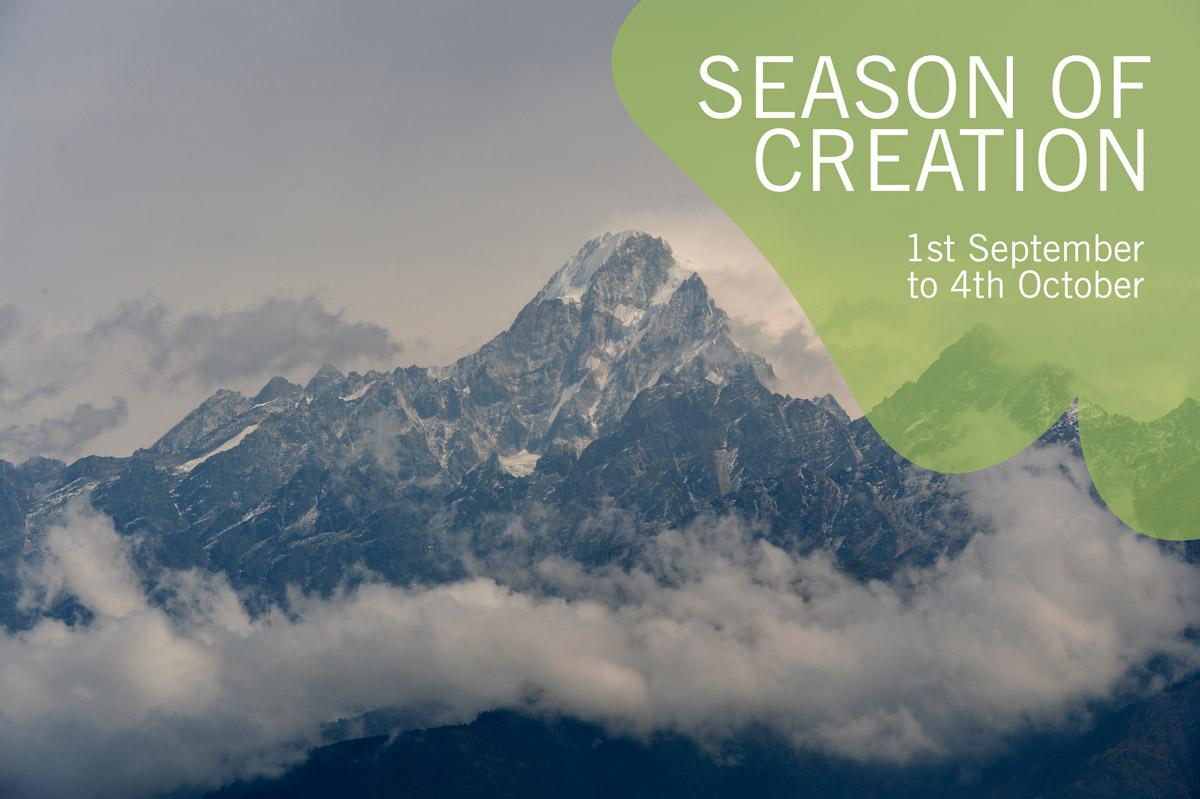Contemplating Creation

Bless the Lord, O my soul.
O Lord my God, you are very great.
O Lord, how manifold are your works!
In wisdom you have made them all; the earth is full of your creatures.
Yonder is the sea, great and wide, creeping things innumerable are there, living things both small and great.
There go the ships, and Leviathan that you formed to sport in it.
These all look to you to give them their food in due season;
when you give to them, they gather it up; when you open your hand, they are filled with good things.
When you hide your face, they are dismayed; when you take away their breath, they die and return to their dust.
When you send forth your spirit, they are created; and you renew the face of the ground.
The psalmist contemplates creation. Seeing God’s care for the well-being of each creature generates a joy that wells up in a poetic blessing of Divine Providence. The psalmist makes a habit of contemplating creation. Each faithful gaze into the sublime beauty of God’s handiwork reveals a profound truth about the Creator, and our proper identity as creatures.
Before I was a theologian, I studied biology. I was trained to see the mutuality and interdependence of organisms and minerals within their environment. I have been blessed by a lifetime of exploring the diverse biological, geological and social ecologies that nurture our life, sustain our well-being and shape our cultures and faiths around the earth. I have wandered through purple heather in the Scottish Highlands, navigated among the verdant banks of the Amazon River, seen the Perseid meteor shower illuminate a Senegalese night, and watched the sun rise over the South African veldt. But I have also seen the arid force of the advancing Sahara that threatens the livelihood of animals and crops. I have experienced the vulnerability of coming face to face with a barracuda in the vast openness of the Caribbean Sea. I was once lost in the Appalachian Mountains and felt the sublime dread of being at the mercy of the weather and an unforgiving wilderness.
Psalm 104 assures us that when we contemplate God’s creative handiwork we will see the way God provides for creatures great and small. But the psalmist also reminds us in verse 29 that God can seem hidden among those menacing parts of creation. Even those who live in urban environments do not need to look far beyond their immediate environment to see that the abundance and mutuality of creation exist alongside scarcity, predation and even disease.
So contemplating creation can be confusing. How can we discern truth about the wisdom of a God who seems hidden behind fragility as well as beauty? What can we say about a God who is present among the destructive threat of changing climates as well as the creative wonder of nature?
Martin Luther referred to creation as a “mask” behind which God was hidden. He knew that God’s will for life is present among both the fruition and the suffering that we see in creation. However, so that we would not despair in the struggle to find the Creator behind this sometimes confusing myriad of creatures, God’s nature was fully revealed in Jesus Christ.
In Jesus, God’s creative Word was reconciled with the same stardust and carbon from which every creature is made so that we would know God’s will that all of creation would have life, and have it abundantly. When we contemplate the birth, life, death and resurrection of Christ, we see this truth revealed in history. This is who God is for us. In Jesus, God’s proper nature—justice, compassion, mercy, peace, and love—was revealed to us.
This good news helps us contemplate creation with clarity. The Christian faith gives us eyes to see Wisdom that before seemed all too hidden among the suffering, competition and injustice of lifestyles that strain the fragile balance of ecosystems. Seeing the way God reconciles creation in Christ equips us to see God’s Spirit at work restoring creation today. Faith gives us eyes to see beauty among the broken. Faith gives us eyes to see healing among the hurt. Faith gives us eyes to see the mutuality among the multitude of creatures, great and small. Contemplative faith renews our hope and gives us the courage to go out and participate in the renewal of the face of the earth that the psalmist saw. It inspires that joy, which overflows in acts of mutual love, merciful advocacy and restorative care for all of creation. Each one is a poetic speech act, a psalm that blesses the Creator.
Like the Psalmist, I encourage all people to get into the habit of going out and contemplating creation in their local ecology. Like a good biologist, developing a contemplative habit can train us to look for the inherent dignity of each creature in their ecosystem. Contemplating creation can inspire us with knowledge of the many ways that creatures great and small care for one another. Contemplating our place among creation can equip us to embrace our peculiar calling to tend the health and well-being of the whole inhabited earth. But contemplating creation in light of our faith in Jesus Christ will ultimately reveal the nature of the Triune God whose wisdom, hidden behind the mask of creation’s sublime beauty and brokenness, continues to be revealed wherever life blossoms.
Prayer
Silence my soul, these trees are prayers.
I asked the Tree, tell me about God.
Then it blossomed.
Rev. Dr Chad Rimmer is Study Secretary for Lutheran Theology and Practice in the Department for Theology and Public Witness.

